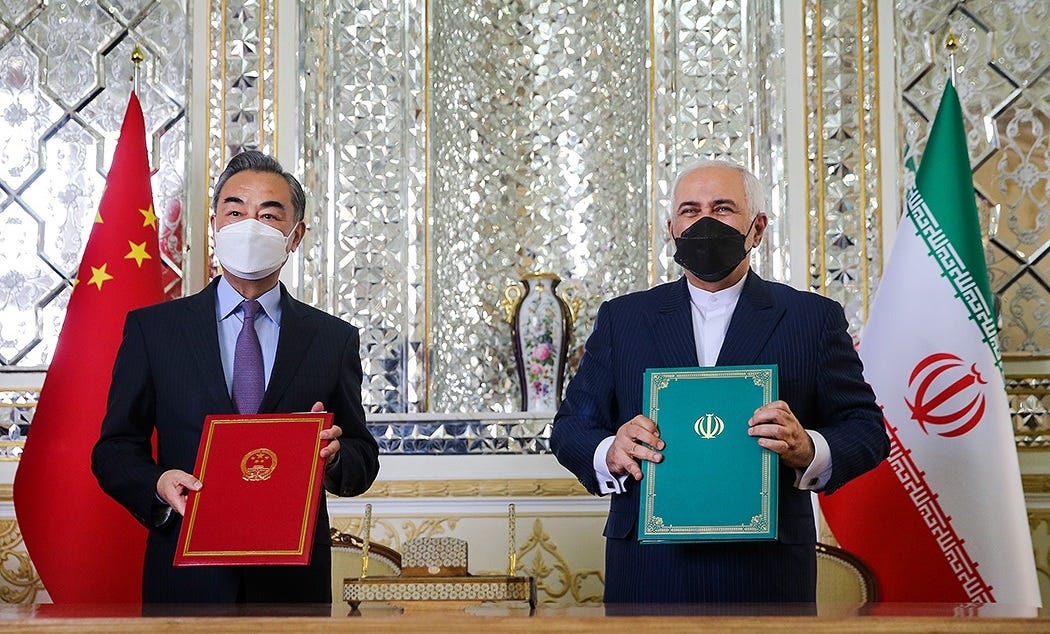Israel-Iran War: The Psychology of Strategic Surprise
The deadly cost of strategic overconfidence
"There are four hundred well-marked graves somewhere in Sicily—just because one man went to sleep on the job. But the graves are German graves, because we caught the bastard asleep before they did." — General George Patton
The Morning That Changed Everything
In the early morning hours, Israeli Air Force jets streaked toward predetermined targets in Iran. Since then, they've maintained unprecedented control over Iranian airspace—a feat unmatched in military history. This ongoing operation, codenamed "Operation Rising Lion," represents Israel's most ambitious military campaign against Iran to date.

Since the outbreak of war on October 7, 2023, when Hamas invaded Israel and broadcast genocide against Israelis live on social media to the world, three military powers have experienced surprise attacks that gave their attackers significant advantages. Hamas surprised Israel, Syrian rebels surprised Russia, and Israel surprised Iran. Despite satellites, cameras, sensors, social networks, open-source intelligence, and more, each side used different tactics within a very short timeframe. While Hamas failed to leverage the surprise factor for significant gains against Israel, the rebels in Syria took over the country, and Israel has spent just days dismantling the limbs of the extremist Islamic authority ruling Tehran and its military installations.
The implications are staggering: no side in the world has the ability to truly know what's brewing in the mind of any given leader. No one really knows their enemy. None of the world's most senior and sharpest analysts can predict with certainty how any country will behave. There are assessments, of course, but no one knows for certain how events will unfold.
Hezbollah's Fatal Miscalculation
Take Hezbollah, for example. On the second day of the war with Hamas, Hassan Nasrallah began a drip campaign of attacks on the Galilee mountain ridge, forcing the Israeli government to evacuate tens of thousands of residents from their homes. Nasrallah saw Israeli society as a spider web that could be easily unraveled - a divided and weak society that preferred the good life over war, careful about its soldiers' lives.
The extreme expression that gave Nasrallah reinforcement for his held conception was how Hamas damaged Israel in a way that diminished its image as a regional military power, and his achievements in battles against Israel misled Hassan Nasrallah into believing in the conception that Israel wouldn't dare open war against Hezbollah.
The Iranian Conception
The assassination of Mohammad Reza Zahedi on April 1, 2024, around 5:00 PM, in a building near the Iranian embassy in Damascus by fighter jets shook Iranian decision-makers to their core, essentially providing Israel with justification to implement its war plan against Iran. This assassination didn't give Hassan Nasrallah sufficient reason to reduce his activity against Israel- on the contrary, he acted more actively and vigorously despite his interests being contrary to his mode of operation. This is the meaning of conception - the perspectives and assessments that guide a person in relation to the world.
Despite Iran attacking Israel and believing it would deter it, in July 2024, Israel operated inside Tehran and eliminated one of Hamas's leaders, Ismail Haniyeh, in a compound considered the most secure and guarded for heads of state and senior officials. Israel demonstrated its ability to penetrate Iran's capital, bypass multiple security layers, and carry out a precise attack without overt attribution. Tehran failed to understand the implications. The regime treated the assassinations as internal sabotage and refused to consider the possibility that a hostile state actor had executed the operation within its territory.
This faulty judgment exposed a structural flaw in the Iranian regime: Tehran's national security system could no longer identify or interpret threats emerging from its core.
In September 2024, Israel began a spectacular operation of pager and walkie-talkie explosions that neutralized thousands of terrorists trained to launch hundreds of rockets and missiles at it. The Israeli Air Force destroyed launch sites and warehouses to reduce the rocket and ballistic threat to the Israeli home front, and the Israeli army redirected its resources from the Gaza Strip to Lebanon with the goal of distancing Hezbollah forces from Israel's border.
The elimination and injury of thousands of Hezbollah operatives forced the organization to mobilize Hezbollah personnel from Syria to Lebanon, and the vacuum created allowed Turkey to go to war against Assad's army and Russian and Iranian armed forces through Syrian rebel forces. Even the elimination of Nasrallah and other senior Hezbollah officials didn't awaken the Iranian leadership to challenge the conception regarding the possibility that Israel would surprise and attack the Iranians similarly.
In fact, the Iranians learned from attacks on Israel in April and October that they were allowed to launch ballistic missiles only to project regional power without paying for it. The Biden administration continued to persist in "de-escalation" policy. Another warning sign that should have shaken the Iranian conception was the Israeli Air Force attack on Iran in October 2024. The Israeli Air Force disabled Iran's defense systems and flew freely over Iran's skies for about three hours.
The Changing American Equation
Tehran's decision-makers didn't assess that the change of administration in the White House created a dynamic shift in American perspective toward Iran. The Biden administration operated under the strategic conception of "de-escalation" - avoiding military friction and using diplomatic tools to reduce violence. Therefore, the Biden administration allowed Iran to openly export oil to the world market and believed that compromises with Iran would encourage it to sign a new nuclear deal. This didn't happen. The Trump administration operated on two parallel tracks: one diplomatic route and the other, preparation for a military attack either directly or through Israel.
The Iranians believed that the Americans only wanted a deal based on their experience with former President Barack Obama and the Biden administration. Not war. Tehran saw Trump's 60-day ultimatum as a political signal, not a real deadline. Believing it had maneuvering room, Iran continued enrichment and stalled for time. Israel attacked on day 61.
This was a miscalculation by the Trump administration and the international community. When the Trump administration renewed nuclear negotiations, Iran mistakenly thought the engagement was a concession. Iranian officials believed that Washington's return to talks signaled weakness and assumed they could achieve sanctions relief without making significant concessions on uranium enrichment.
Iranian Weakness
The Iranian leadership has invested for decades in proxy forces worldwide to fulfill its political goals. These were attempts in various countries such as arms and drug trafficking, operating terrorist organizations against Americans, Israelis, Jews, Indians, Africans, British, and others. Creating smuggling networks by land and sea, temporary collaborations with governments hostile to the US, and corruption of Western institutions like international organizations.
However, the external attack circles created an illusion that distanced Iran from significant military confrontations within it. Therefore, the security investments at the heart of the country allowed various intelligence bodies to operate successfully within it. Assassinations of scientists, government officials, senior officers, establishment of weapons factories, penetration of secret sites like stealing nuclear program archive documents, planting malicious software at sensitive sites, and many other activities are not only the result of brilliant and sophisticated minds that led various intelligence bodies but also an expression of internal Iranian weakness.
The reliance on the Houthis, Assad's regime, Hezbollah, Hamas, and other terrorist groups throughout the Middle East and North Africa was supposed to serve as a protective vest for the Iranian regime. Israel's success against Hezbollah created a domino effect, and the vanishing defense layers left Iran exposed. The decision to accelerate missile production, purchase military equipment on a massive scale, and continue uranium enrichment as the International Atomic Energy Agency report presented on the eve of the Israeli attack on Iran was an expression of fear and anxiety of the regime instead of internalizing that this decision might lead to a stronger attack due to the absence of the defense layers Iran had enjoyed for years.
Global Thinking Error
The tightening of relations between China and Iran, mainly against the backdrop of sanctions lifted after the nuclear agreement Iran signed with the European Union, US, China, and Russia in 2015 led by the US, allowed China to invest in Iran in exchange for cheap oil supply. The economic relations between the two countries led the regime in Tehran to believe that this relationship provides Tehran with geopolitical protection. One example is China's support for Iran's inclusion in the BRICS axis of countries.

However, China always chooses to avoid situations that might harm it and especially to openly position itself behind factors that might distance it from its interests. To the Muslim audience worldwide, China condemns Israel; to the Western audience, China calls for a diplomatic arrangement; and to the audience in the Far East region, China offers to mediate between the sides and show neighboring countries that it's a stable and non-threatening factor.
The rapprochement of Saudi Arabia and the UAE to Iran during 2023, the Biden administration's compromise with Tehran, the close relationship with China, and military cooperation with Russia gave decision-makers in Tehran a perception of international protection.
Psychological Deception
Israel experienced on the morning of October 7, 2023, the horrific meaning caused by the collapse of the security conception it had held for many years. From the political level to the last commanders in the security system. Yahya Sinwar acted brilliantly and deceived decision-makers to such an extent that southern Israel was abandoned to mass invasion and deepening territorial conquests - had Nukhba forces not lingered to commit mass murder in Israeli settlements, Israel would have faced a completely different and more terrible campaign.
Psychological deceptions are part of the art of war. The immortal verse, "For with wise guidance you can wage your war, and in abundance of counselors there is victory," emphasizes the vitality of operating multiple factors in deceiving the enemy and exploiting this for a significant and effective military attack to gain advantage on the battlefield.
Israeli and global media, for example, received many messages about planning Avner Netanyahu's wedding, his planned vacation to the Galilee, political crisis over the conscription law, humanitarian crisis in the Gaza Strip, disagreements with the Trump administration, Trump's call to end the war in Gaza Strip, rumors about progress in negotiations with Hamas regarding hostages, and delegations of Israeli representatives flying to various countries to mediate in the hostage deal. Many messages that flooded social networks and filled the airwaves were part of Israeli and possibly American manipulations to create media noise that would inject misleading information into Iranian intelligence consciousness.
The beginning of "Operation Rising Lion" met all the criteria of surprise and deception. Israeli drones were operated from launch points placed in advance within Iranian territory, and the regime's national command authority had already lost the initiative. The Islamic Republic relies on power projection - on appearing untouchable and in firm control from top to bottom. Its deterrence is largely psychological. The psychological effect of eliminating scientists and first-rank regime officials at the beginning of the attack is enormous, especially given that they all slept in their homes without special precautionary measures.
Israeli intelligence penetration in Iran undermined trust between people at different levels and reduced the possibilities of creating reliable communication. The Iranian leadership literally became fugitives without the ability to assemble stable and reliable decision-making circles. The uncertainty about who remained immediately makes them suspects, and the inability to rely on and trust people within the closest circles disintegrates the regime's various forces.
Iran's response, consisting of launching drones and missiles, doesn't provide an adequate response given its power projection toward the forces it supported like the Houthis and Hezbollah. Israel's air control and moving the population from different areas to others like in Gaza Strip and Lebanon pulls out the foundation stones of dictatorial rule that is strong against the population and weak against real external threats. If this trend continues, we might expect a crumbling regime either during the war or after it due to the lies that flooded the public for years and the masks torn from the faces of regime officials.
The Strategic Implications
Israel has proven to the US that it is a vital ally because it has succeeded in demonstrating superiority over Russian defense systems, injecting quality intelligence in Iran, and operating with effective and strong military force against the spread of nuclear weapons in the region and undermining its stability.
Iran will not only pay in reducing uranium enrichment and advancing the nuclear project but will be charged higher prices in such a way that it will no longer be the enormous strategic threat in the region to the energy industry, maritime shipments, or weapons of mass destruction.
The current operation demonstrates that in an age of total surveillance, the human element of strategic surprise remains the ultimate wild card. When leaders sleep on the job—literally or figuratively—empires can crumble in days.
If you found this analysis insightful, please share it with others. Subscribe for more in-depth strategic analysis as these historic events continue to unfold.











Iran reminds me of the Black Knight in Monty Python's Holy Grail. "Tis only a scratch".
What an insult my relatives fought and died fighting the nazis in Italy.
You are a disgrace to their memory.
Your Isreal is ever bit the fascist socialist state Italy and Germany where and Ukraine is still today.